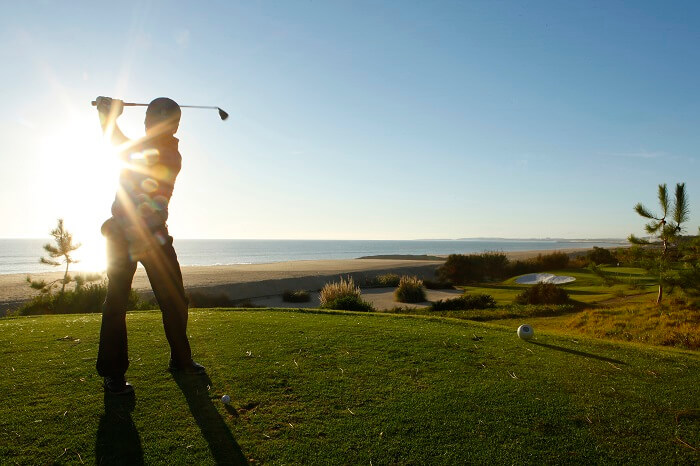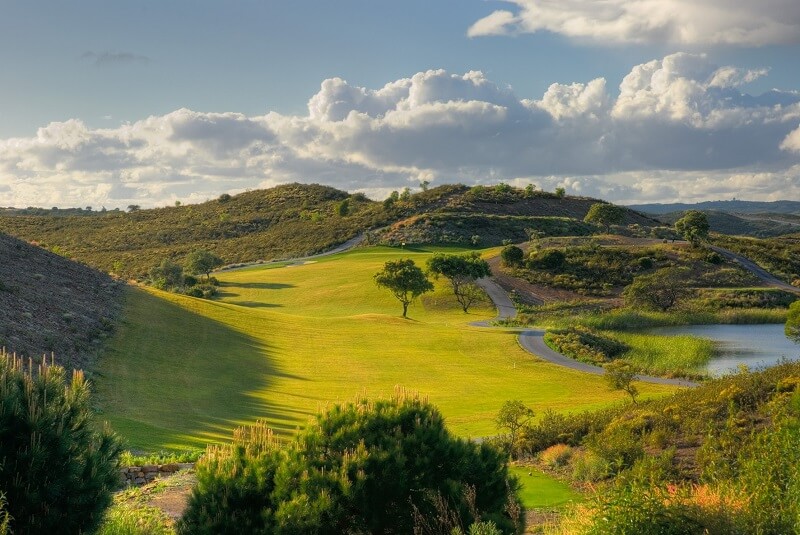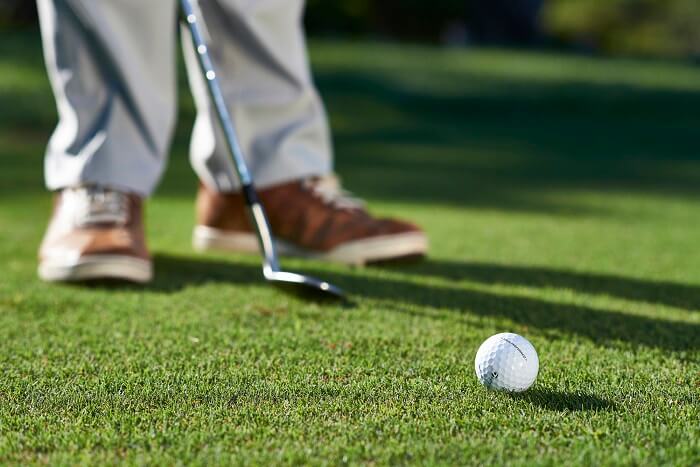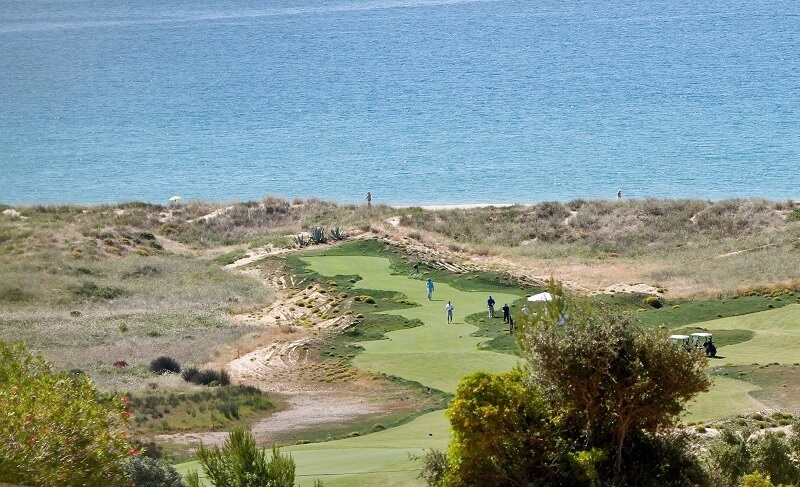Greener golf: As the golf industry becomes more and more a source of wealth in the Algarve region, the sector strives to become “as sustainable as possible”
– January 23, 2024 | Text Michael Bruxo

It is undeniable the huge impact that golf has in the Algarve’s tourism sector. Pre-pandemic studies have found that the golf industry can generate around €500 million here in one year. This is why making sure the sector becomes as sustainable as possible is a goal that is being taken very seriously in the region, which continues to scramble for solutions to its new drought-centred reality.
In October, the executive commission of the Algarve tourism board (RTA) headed by president André Gomes visited the Salgados golf course in Albufeira to see, first-hand, the investments that have been made to link the golf course to the nearby wastewater treatment plant, enabling the irrigation of the course with treated wastewater. “These visits are strategic in the sense that they allow us to showcase all the investments that are being carried out in the Algarve to make golf more sustainable,” said Gomes. “I was also pleased to see that the golf course was completely full,” he added, highlighting the importance of the sport in the fight against seasonality.

The visit was preceded by predictions made by the president of regional water authority Águas do Algarve (AdA), who believes that half of the nearly 40 golf courses in the region could be irrigated with treated wastewater by 2025. Speaking to Lusa news agency, António Eusébio said that the estimate is based on a €23 million investment to be implemented by 2025 as part of the Water Efficiency Plan to produce treated wastewater for irrigation. “With this investment, we estimate an increase of 1.4 cubic hectometres to 8 cubic hectometres per year, with 71% going to golf courses,” the AdA boss said.
According to Eusébio, golf courses currently consume about 15 cubic hectometres of water per year. The goal of Águas do Algarve is to reach the end of 2025 with 8 cubic hectometres used mainly for golf course irrigation. The president of the water authority also said that reused water from Wastewater Treatment Plants (ETAR) can be used not only for golf course irrigation but also for agricultural irrigation, street cleaning, and public green spaces.

António Eusébio was one of the speakers at a seminar on wastewater management in golf courses organised by the Portuguese Golf Federation, which took place in Lagos in October. “This is an extremely important meeting,” said Eusébio, addressing the entrepreneurs in attendance. “It is fundamental that we work together to obtain new water sources, new reserves and ways of reusing water.”
Whilst using treated wastewater may not necessarily be a “new source”, he said it “allows us to keep water in dams and boreholes”. Thus, by using treated wastewater to irrigate golf courses, the remaining water left in the region’s reservoirs can be used “essentially” for public supply, Eusébio added.
For António Eusébio, effective water management is a “global challenge”, but it holds significant importance in the Algarve, “a region currently facing one of the most critical water scarcity moments in decades”. He also announced that Águas do Algarve is working on five projects with funds from the Recovery and Resilience Plan (RRP) to improve water efficiency in Vila Real de Santo António, Vilamoura and Quinta do Lago (Loulé), Albufeira, and Boavista (Lagos).
The largest projects are in Vilamoura and Quinta do Lago, which represent a €14.7 million investment. In Vilamoura, approximately 12 kilometres of piping will be completed by 2025 to connect to the beach resort’s ETAR for the irrigation of five golf courses and green spaces.
In Quinta do Lago, similar works will be completed to bring treated wastewater to three more golf courses and additional green spaces by 2025.

Works are also being carried out in Albufeira to link local infrastructures to the Albufeira Poente wastewater treatment plant, and in Lagos to provide treated wastewater for the Boavista golf course. “All these measures and investments are crucial to ensure a better balance between water demand and availability. Everyone must strive to do more and better to face the challenges of climate change,” said Eusébio.
André Gomes has weighed in, saying he is confident that the goal set by AdA can be achieved and said that tourism authorities in the Algarve are doing what they can to make it come true.










